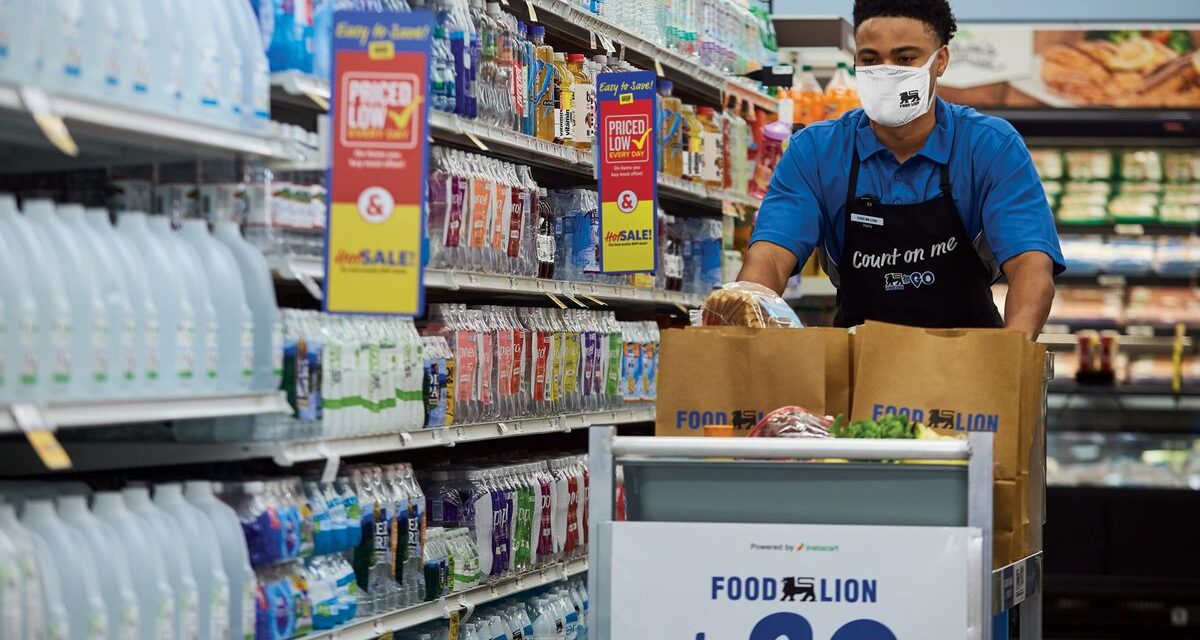A Food Lion employee working in one of the chain’s stores. Courtesy of Food Lion
Jeff Wells|Source: www.grocerydive.com, September 2022
Dive Brief:
- Seventy-three percent of retailers say they’re continuing to invest in and experiment with technology to boost the shopping experience, according to a recent survey of retail executives conducted in the second quarter by the Food Industry Association (FMI).
- However, just 39% of respondents said their overall technology investments have had a positive impact on their businesses.
- Seventy-three percent of surveyed suppliers, on the other hand, said technology investments are paying off for their companies.
Dive Insight:
FMI’s survey found that retailers are investing in technology to enhance the shopping experience and increase accuracy and efficiency in their operations. But many of them aren’t yet satisfied with the results they’re seeing.
When it comes to improving the customer experience, 88% of food retailer respondents said they’re investing in technology to personalize the shopping experience, while 46% said they’re focused on making checkout faster and easier with offerings like scan-and-go technology and mobile payment systems.
On the operations side, a little over half of the respondents said they’re using or plan to use technology to help manage their fresh inventory, and around the same amount said the same for dynamic pricing software. Forty-four percent said they currently have electronic shelf labels in their stores or plan to install them.
The survey, which is the 74th edition of FMI’s annual “Retail Speaks” report, was the first to include input from manufacturers. It found that suppliers spent significantly more on technology in 2021, investing 3.3% of their total sales in this area versus the 1.3% of total sales that retailers spent. Nearly three-quarters of suppliers said their technology investments have made a positive impact on their businesses.
Retailers’ low level of satisfaction with their tech investments could be explained in part by the fact that many of these investments haven’t had time yet to bear fruit. Mark Baum, chief collaboration officer with FMI, said retailers and suppliers rapidly adopted new technologies during the pandemic in order to manage their supply chains, online shopping platforms and more.
Grocers are finding e-commerce to be a particular challenge. Just 10% of respondents said they consider their e-commerce platforms “very sophisticated” while 46% said they view this part of the business as “not sophisticated.” Forty-seven percent of retailers said online sales increased in 2021, but only 20% said they expect sales in that channel to grow this year.
Fifty-one percent of retailers surveyed said their e-commerce business is profitable.
A little over half of the respondents were operators with less than 10 stores while 30% operate more than 100 stores. The sample is representative of 90% of U.S. grocers, according to FMI.
In addition to technology challenges, the report also showed that a high percentage of retailers are still battling inflation, supply chain and labor woes. Eighty-seven percent of retailers said attracting and retaining talent is challenging their business, while 85% said they expect inflation to negatively impact their margins.
“The survey revealed that retailers remain concerned that the extreme obstacle course they’ve been navigating for the last few years continues and that it’s going to get even more complex for them as we move forward in the end of [2022] and into [2023],” Leslie Sarasin, FMI’s president and CEO, said during a media briefing last week.

